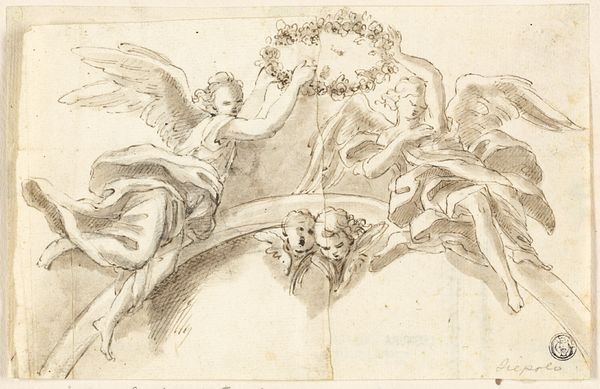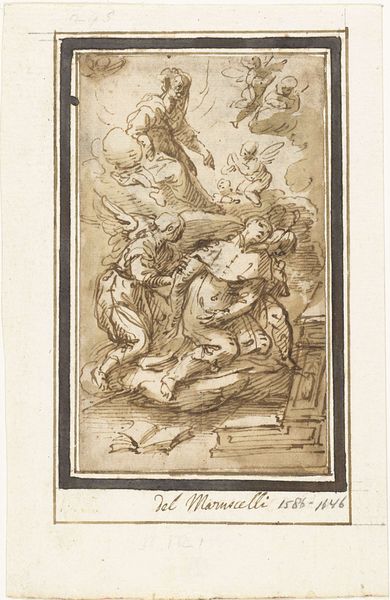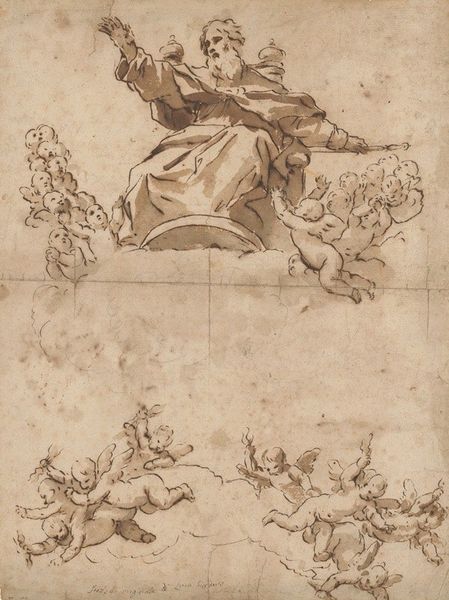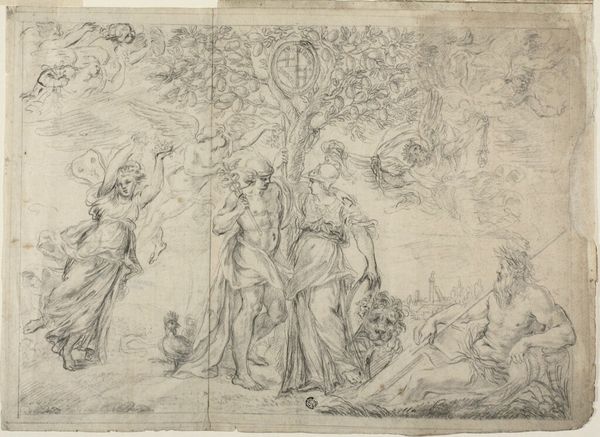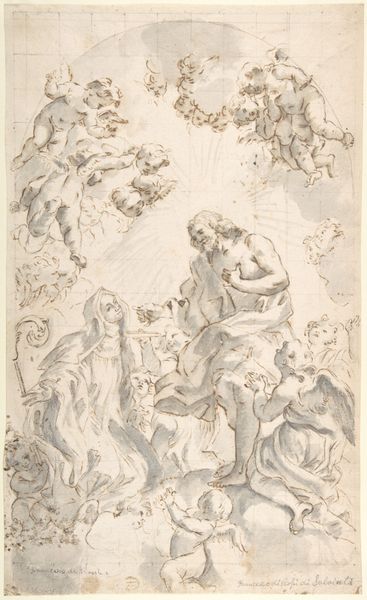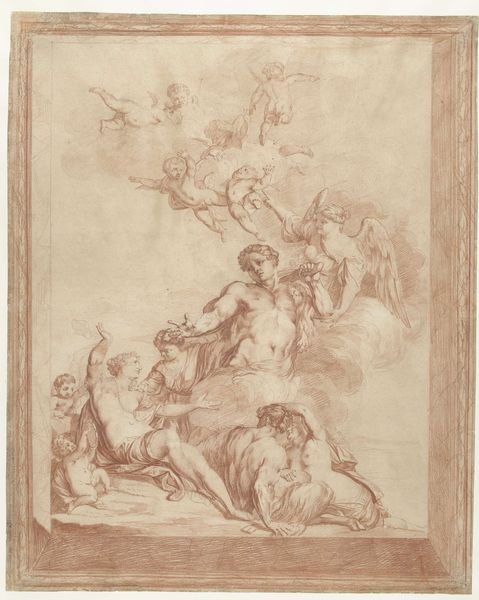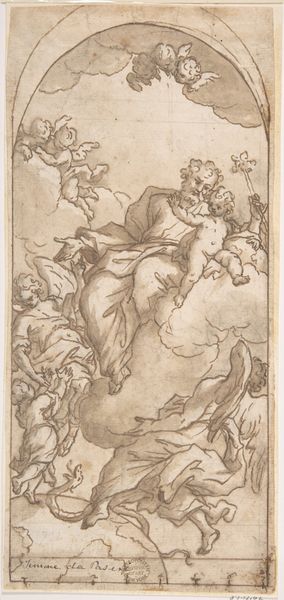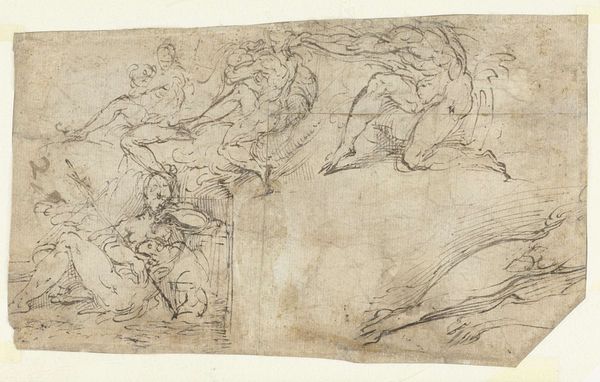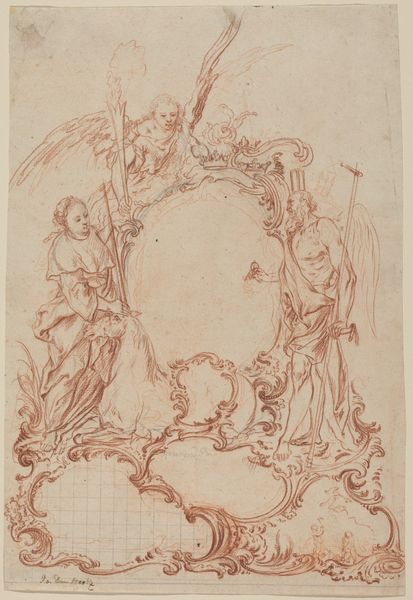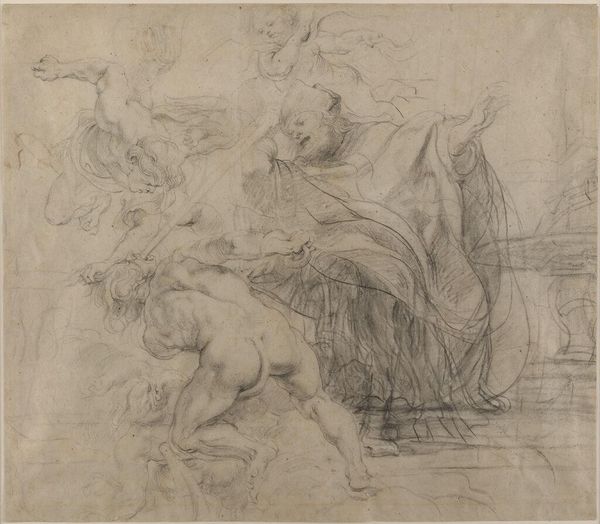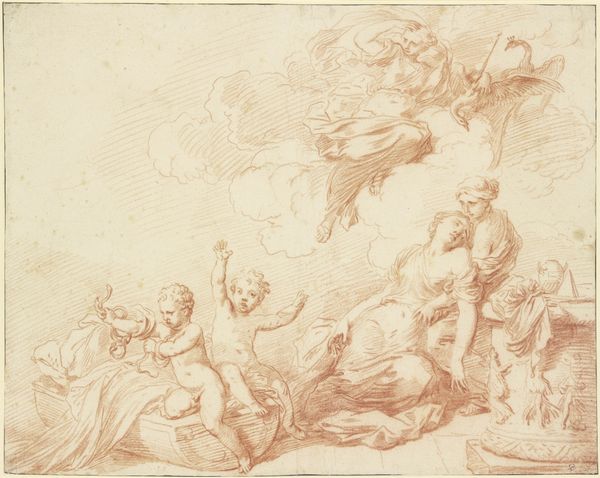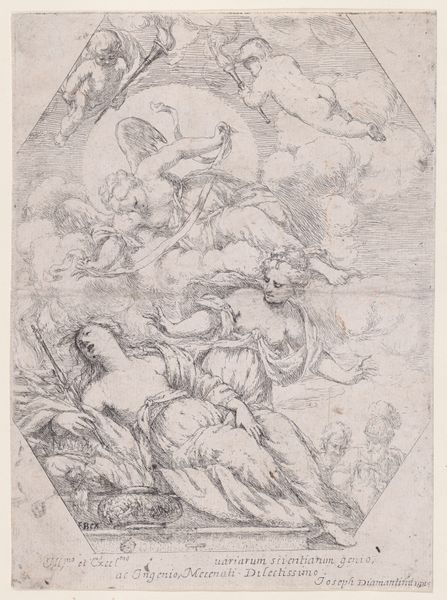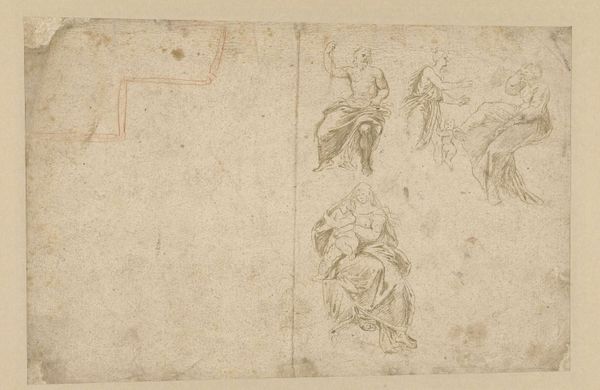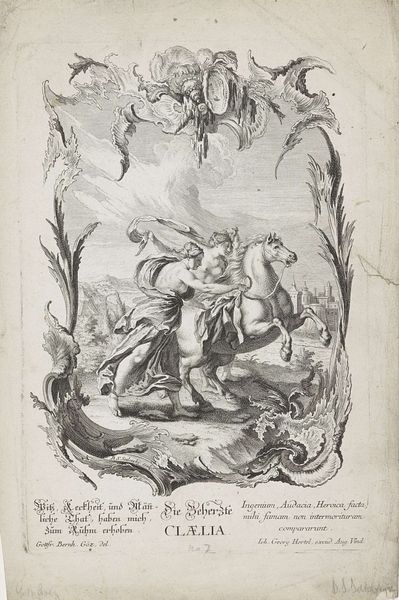
drawing, pencil
#
drawing
#
narrative-art
#
pen sketch
#
pencil sketch
#
landscape
#
figuration
#
pencil
#
history-painting
Copyright: Public Domain: Artvee
Curator: Here we have a pencil drawing entitled "Orlando and Angelica Arrive at Charlemagne’s Camp” by Jean-Honoré Fragonard. It presents a scene teeming with figures on horseback and what seem to be playful cherubs above. Editor: There's a frenetic energy in the piece. The sketchy lines create movement and lightness, despite the relatively serious subject matter it seems to hint at. I'm immediately struck by how the female figure seems at odds with her surroundings. Curator: It certainly captures a specific moment steeped in history and legend, alluding to episodes within Charlemagne's court. The choice of pencil lends a casual air, contrasting with the epic narratives usually associated with this era. Editor: It does beg the question of why Fragonard, known for his rococo frivolity, would depict such a grand scene with such a medium. Was this a preliminary study, or was it a deliberate choice to undermine the established visual narratives of power and heroism? The rendering of Angelica feels different from the men around her, she has almost a regal serenity, an almost Madonna-like visage in all the chaos, suggesting maybe the subversion of a power narrative, as well as perhaps a feminine perspective in the staging of an epic? Curator: Indeed, it pushes against artistic norms! Fragonard may well have aimed to make these powerful figures more approachable. Perhaps that reflects broader societal shifts and evolving public sentiment toward leaders at the time? Consider how visual representations influenced popular opinion and the authority these figures wielded. Editor: Perhaps his technique democratized history in some fashion. Making something immediate with what appears to be effortless drawing in graphite, especially when compared to oil or fresco cycles... There's a definite reduction of pretension here; a sense of history being reimagined through a less formal lens, a turn from idealized grandeur. It poses fascinating questions about class and access. Curator: It certainly adds another dimension to our interpretation. Editor: It makes you want to rewrite the story! Well, thank you. I definitely view it differently now. Curator: Likewise, thinking about Fragonard through your interpretation truly resonates and will shift the way I perceive this piece moving forward.
Comments
No comments
Be the first to comment and join the conversation on the ultimate creative platform.
